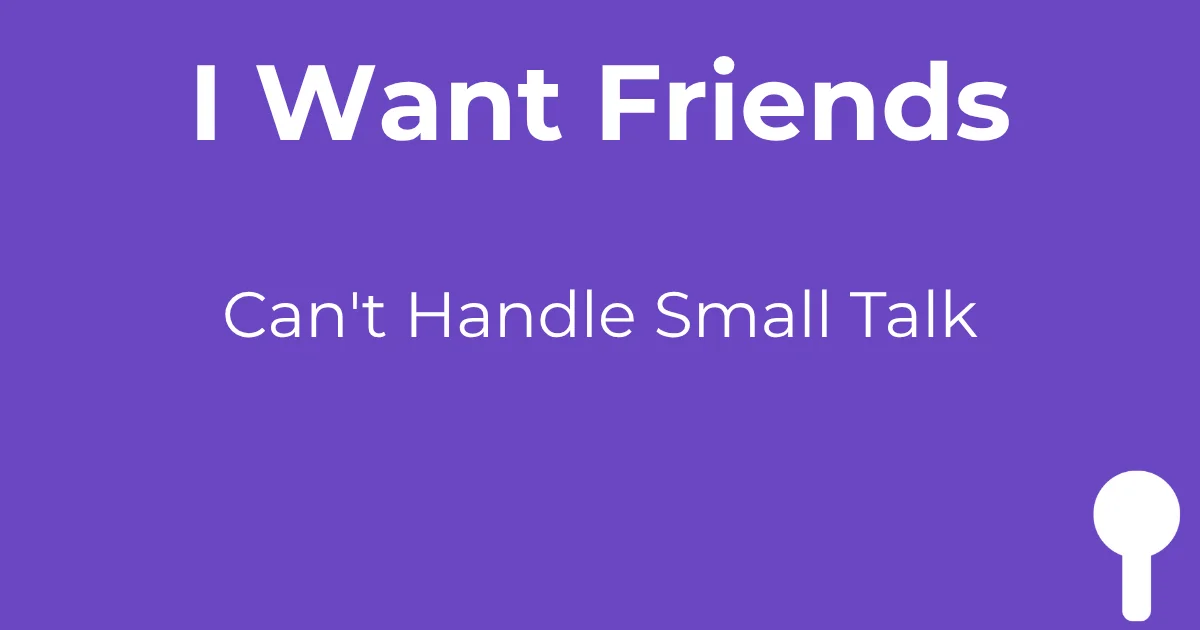
I Want Friends. But 90 Minutes of Small Talk Costs Me 48 Hours.
I Actually Want to See My Friends
I wanted to visit my friends to go walking in the park and hang out at their house—watch a movie or something. I wanted to see them in person, not just chat online. But I avoid their requests to hang out entirely or postpone them weeks or months in advance.
I’m not avoiding them because I don’t care. I’m avoiding the small-talk part because it wipes me out.
The problem is constant small talk and eye contact. It exhausts me too quickly.
The Small Talk Tax
Usually a few minutes of small talk gets me to the actual conversation. It's still really exhausting, but being able to talk about something we both clearly have in common—or my special interests like programming, digital art, animation—makes conversation a lot more manageable for me.
But those first few minutes feel like my fuse is burning way too quickly. Even with friends and relatives I've known for years.
The masking involved—monitoring my facial expressions, forcing eye contact, laughing at the right moments—burns through my energy before we even get to actual conversation.
My motivation fades fast because the executive function demand is constant—thinking about what they'll say, how they'll react, what I should say next.
The unpredictability drains me fast. That drains most of my energy, making it even harder to continue talking. A 90-minute hangout leaves me at 2 energy that night and barely 4 energy the next day—48 hours where I can't even respond to texts. I'll just continue to scroll right by them and not reply back until several days later.
After a hangout, if it involves a bunch of small talk on unfamiliar questions or ones that drag out for multiple minutes, I'll be at around 2 energy by the time the day is over But if most of the day simply involves us hanging out and not much conversation takes place, I'm at around 5 energy—giving me energy to draw or play some games on my computer before bed.
Why I Stay Home Instead
There are meetups a few miles from where I live. They occur very often. I see them on my phone all the time.
Despite really wanting to go, the exhaustion is way too much to handle.
I strongly prefer either chatting with a very small group of people in one setting for a few hours with plenty of breaks in between, or strictly online where I don't have to perform as much when meeting new people for the first time—even friends I already know.
So I stay home and chat through text most of the time. I can take my time messaging them. Timing isn't strict and most of my friends are okay with this. But in-person conversation and small talk is still immensely draining.
Work already drains me to the edge of what I can handle. Adding social depletion on top of work depletion would push me to complete shutdown.
I've avoided most of them to ensure I don't get pushed further into autistic burnout, making conversation—even through text—harder.
Why I'm Building This
I'm Omari, a 23-year-old autistic adult who's been managing chronic burnout for 5+ years while working warehouse shifts.
Texting is how I stay present in my friendships without collapsing.
This is why I built Spoons. To see the actual cost of socializing versus staying home. To know when I have enough energy for friends, and when I don't.
Launching April 2026. getspoons.app - One email when it's ready. No spam.
— Omari
Note: I'm sharing my personal experience as an autistic adult, not medical advice. If you're experiencing severe burnout or crisis, please consult a healthcare provider familiar with autism.
